Search
Did you mean: Cronus?
Search Results
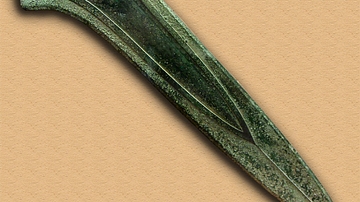
Image
Bronze Age Sword
Ceremonial giant dirk of the Plougrescant-Ommerschans type, Plougrescant, France, 1500–1300 BC.
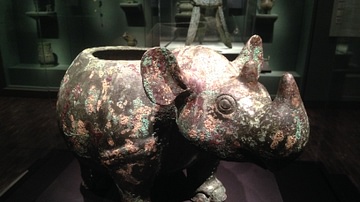
Image
Bronze Ritual Vessel in the Shape of a Rhinoceros
This bronze ritual vessel dates to 1100 – 1050 BCE (Shang Dynasty period). Unearthed in Liangshan, Shandong, the vessel, likely used to hold wine or food, is notable for its differences from other bronze ritual vessels of its time. Few...
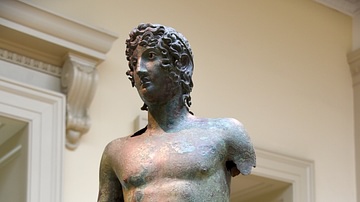
Image
Bronze Statue of a Young Man from Ziphteh
In ancient Greece and Rome, bronze and marble statues adorned public palaces and the sanctuaries of gods. Over centuries, almost all the bronze statues were melted down for re-use. This is one of the very few surviving examples from Egypt...
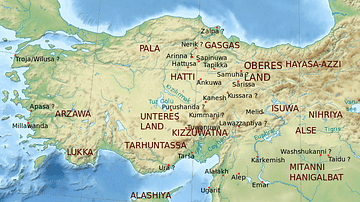
Image
Bronze Age Anatolia
A map of Bronze Age Anatolia. Indicated in the northeast is the Hayasa-Azzi confederation, an indigenous Bronze Age tribal confederation which flourished on the plateau of ancient Armenia and Turkey between c. 1500 and c. 1200 BCE.
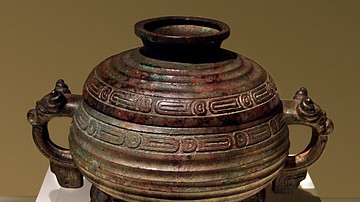
Image
Bronze Zhou Cooking Vessel
A Western Zhou ceremonial bronze of cooking-vessel form inscribed to record that the King of Zhou gave a fiefdom to Shi You, ordering that he inherit the title as well as the land and people living there. Bronze Gui of Shi You (food container...
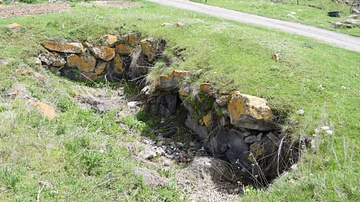
Image
Bronze Age Burial Tomb at Lchashen
When Lake Sevan's water dropped due to hydroelectric production in 1950, countless graves and other ancient artifacts were uncovered in Lchashen, Armenia. Over the decades, 800 graves were discovered the majority of which were made from stone...
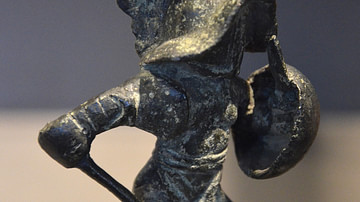
Image
Bronze Statuette of a Hoplomachus
Bronze statuette of a hoplomachus, a type of gladiator in ancient Rome, armed to resemble a Greek hoplite (soldier with heavy armour and helmet, a round shield, a spear, and a sword). The hoplomachus wore a bronze helmet, a manica (armguard...
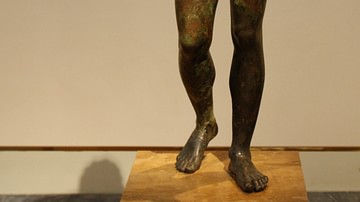
Image
Bronze Greek Athlete
A bronze Greek athlete recovered from the sea off Marathon. 340-330 BCE. (National Archaeological Museum, Athens)
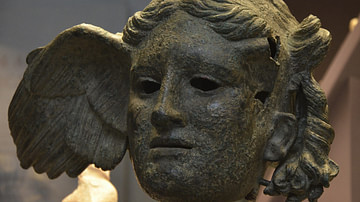
Image
Bronze head of Hypnos
Bronze head of Hypnos (god of sleep), 1st - 2nd century CE. Copy of an Hellenistic original, found at Civitella d'Arno (near Perugia, Italy). Now in the British Museum, London. Hypnos was the son of the goddess Nyx (the deity of the Night...
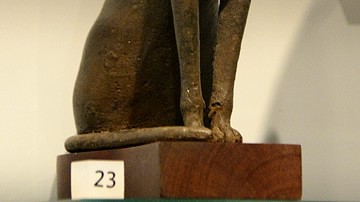
Image
Bronze Cat from Egypt
Hollow-cast bronze cat, probably a votive offering to the goddess Bastet, from Tell Basta, Egypt, c. 664-30 BCE.
National Museum of Scotland, Edinburgh.